The World Nomads Podcast: Morocco
The Disneyland of right hand point breaks - capturing great photos - Morocco on a budget and why mint tea has a carpet salesman worried.
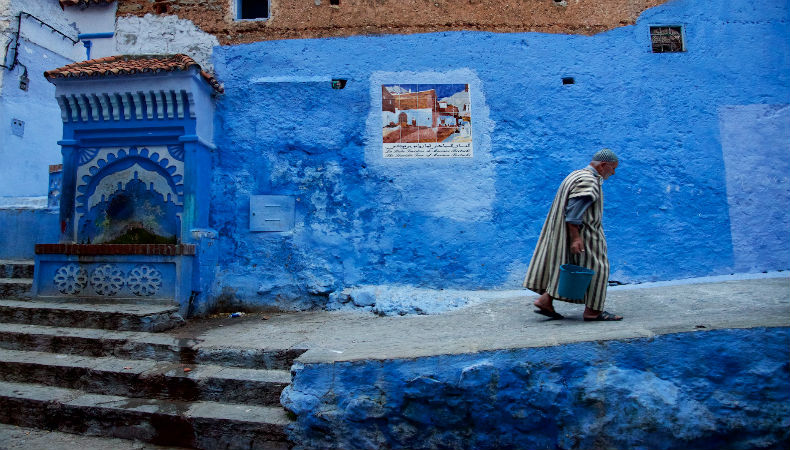 Photo © Ralph Velasco 2015
Photo © Ralph Velasco 2015
Listen Now
The World Nomads Podcast: Morocco
In this episode, tips on capturing great photos in Morocco, the surf culture and why traveling there doesn't need to break the bank.
What's in the Show
00:14 Welcome
00:43 Quiz Question
01:31 Marek Bron from Indie Traveler
05:50 Morocco on a budget
07:07 What was Claudia doing in Morocco and why was she in tears?
16:25 Peter chats to the locals in Morocco and finds out why a carpet salesman has given up mint tea.
19:40 Meet the women traveling to every country in the world
23:00 #twinbedsbydefault
28:11 Is Morocco safe?
28:45 Tips for taking great photos in Morocco
35:27 Travel News
39:00 Surfing Morocco
45:24 Answer to the quiz question
46:07 Where to next?
Who is on the Show
Oli Russell-Cowan is the Founder & CEO of Rad Season, an innovative, all-in-one website for finding and booking accommodation
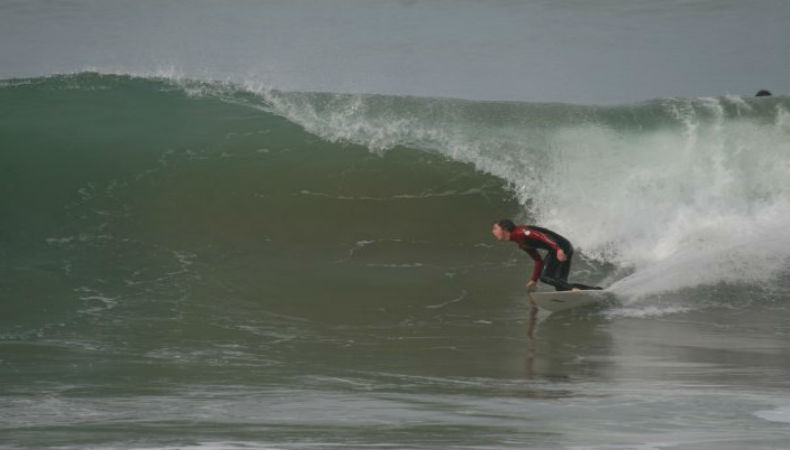
Marek Bron runs the blog Indie Traveler encouraging others to travel more and to travel independently and on a budget by sharing real stories and offering honest advice.
Rach & Marty are The Very Hungry Nomads. You can follow their journey as they aim to be the first Australian and the youngest European woman to visit every country in the world – all 195!
PhotoEnrichment Adventures is run by travel photographer, author, and international guide Ralph Velasco. You can join Ralph on his 2019 Mystical Morocco tour, click here for details.
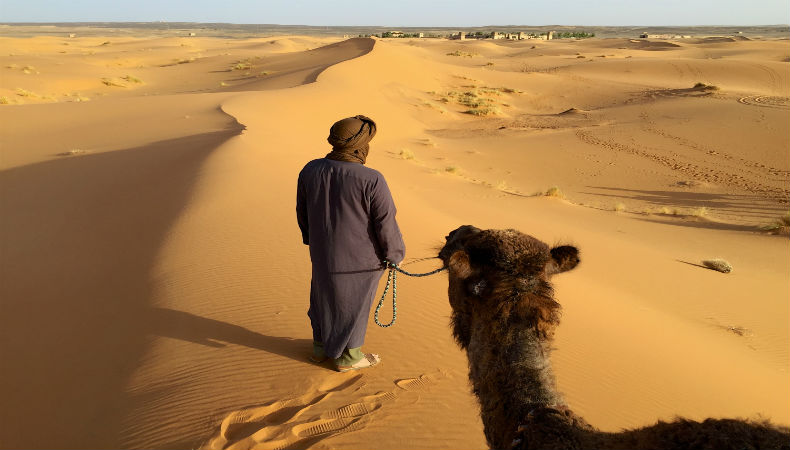
Ralph can also teach you how to organize and lead your own special interest tours through an online course called Get Paid to Travel: How to Organize and Lead your Own Tours for Profit.
Claudia Crook was a World Nomads 2018 Writing Scholarship winner. You can see her work from Argentina under the Resources & Links heading. In this
Resources & Links
Read Writing Scholarship winner Claudia Crook's first assignment as a travel writer.
Scholarships Newsletter: Sign up for scholarships news and see what opportunities are live here.
Want to Re-publish This Episode?
Copy this code onto your web page or blog:
<iframe width="100%" height="200" src="https://player.whooshkaa.com/player/episode/id/268347?visual=true&sharing=true" frameborder="0" style="width: 100%; height: 200px"></iframe>
Want to Talk to us?
We want to hear from you! If you have any travel insurance questions to Ask Phil, want to give us feedback on the episode, or have suggestions for topics you'd like us to cover, email us at podcast@worldnomads.com
Sign up for Podcast News
Explore your boundaries and discover your next adventure with The World Nomads Podcast. Hosted by Podcast Producer Kim Napier and World Nomads Phil Sylvester, each episode will take you around the world with insights into destinations from travelers and experts. They’ll share the latest in travel news, answer your travel questions and fill you in on what World Nomads is up to, including the latest scholarships and guides. The World Nomads Podcast is not your usual travel Podcast. It’s everything for the adventurous, independent traveler. Don’t miss out. Subscribe today.
Next episode: Amazing Nomad Mike Dawson
About World Nomads & The Podcast
Explore your boundaries and discover your next adventure with The World Nomads Podcast. Hosted by Podcast Producer Kim Napier and World Nomads Phil Sylvester, each episode will take you around the world with insights into destinations from travelers and experts. They’ll share the latest in travel news, answer your travel questions and fill you in on what World Nomads is up to, including the latest scholarships and guides.
World Nomads is a fast-growing online travel company that provides inspiration, advice, safety tips and specialized travel insurance for independent, volunteer and student travelers traveling and studying most anywhere in the world. Our online global travel insurance covers travelers from more than 135 countries and allows you to buy and claim online, 24/7, even while already traveling.
The World Nomads Podcast is not your usual travel Podcast. It’s everything for the adventurous, independent traveler. Don’t miss out. Subscribe today.
Speaker 1: Welcome to the World Nomads Podcast, delivered by World Nomads, the travel lifestyle and insurance brand. It's not your usual travel podcast. It's everything for the adventurous, independent travel.
Kim: Thank you for tuning in. My name is Kim and alongside me is Phil, and on this episode, we are traveling to Morocco.
Phil: Very exotic, indeed.
Kim: And it also forms a backdrop to many foreign films that have been entirely, or at least partially shot in Morocco, which brings us to your quiz question.
Phil: Name three Hollywood movies that have been filmed in Morocco, and if you say Casablanca, you are wrong. That was filmed in Burbank, California.
Kim: It was entirely on-site, yeah. On-site.
Phil: Pick three others.
Kim: We will have the answer the end of the episode, but we don't have any Hollywood stars in this episode, Phil. Our guest's a star in their own right, including yourself. Ali runs a business called Red Season. It's an all-in-one website for finding and booking accommodation to the best action, sports, venture, and music festivals in the world. He's going to check surfing in Morocco. We will find out about capturing the best picks with Ralph, and Claudia will share
Merrick B: Yeah, I think what I did was probably ... So, I spent a month in Morocco, and it struck me that there are some itineraries or routes that people usually might want to consider. I think the standard trip seems to be Marrakesh, the city of Marrakesh, and the Sahara. Those usually go together in a one-week experience where you are in the old city for a while exploring the markets, maybe staying in a riad, one of those sort of traditional, almost palatial little hotels with a courtyard. You go to the Sahara. That's a one-week, sort of classic, Morocco experience, I would say, and there
Kim:
Merrick B: Yeah, it is. I think Morocco is great, actually. It is very unique as you mentioned, and it
Kim: One of the things we try to uncover at World Nomads and on the podcast is those places that are off the beaten track, and when you Google Indietraveller.co, and we will have the links in our [inaudible 00:04:46]. You go to Morocco, and there is a link there to the seven best places for wild swimming. So, what are some of those secret spots?
Merrick B: That's an interesting question because I think the resource I linked was another site, and I did use that to find one swimming hole near I believe it was Tafraout. It's a small town in the South, and I just went up there and you get to a place where there's really no sign or anything. You have to know where it is or ask people around, and you get to a sort of oasis-like place underneath the rocks where you can take a little dive. It's quite deep. You can jump right in, and there was not any tour itinerary that I know of.
Kim: Okay, so how much does it cost to travel to ... Not travel to Morocco because, as you say, you can get budget airline flights to Morocco; but once you are there on the ground, how do you do it without breaking the pocket?
Merrick B: I would say don't take tours. There are very many tours on offer when you get to Morocco that
Kim: Still to come, surfing in Morocco, but right now, let's here Claudia's story about her time with a local family in Morocco.
Claudia: I had already bought my tickets to Morocco. I was going. I didn't know anybody, and then I happen to connect with
Kim: Wow.
Claudia: Yeah, and that was the month of November, and I was personally going through a lot at that time, which I don't know if we necessarily want to get into, but the whole trip was an Eat, Pray, Love kind of thing for me. I had just gone through this whole big breakup, I had just left my job, I had just left Los Angeles, I had left everything. I was assaulted the first week of my trip when I was in
So anyway, it was a lot that I was going through when I arrived at their doorstep, but they were so welcoming and, "Who was this girl who doesn't speak any Arabic? She doesn't know how to milk a cow and all this kind of stuff", but they were so willing to teach me and we very quickly started making jokes about how I wasn't going to go back to America and I was just going to stay in Morocco, and all that kind of stuff, and how it was going to bring my mother over, and all that; and again, early on, it was like the first week or two that the American elections happened; and the people I was staying with, they were four sisters, and one of their sister's sons; and the youngest of the four sisters was actually really cool. She spoke English and French as well as Arabic and Berber, but she was one of only four women who was elected a council member of their local community council, and so she was very much a representative for women's rights in the community.
So, she was politically savvy and
So, that was sort of the idea was that it was like, I wanted to make this dinner for them as a parting gesture of giving of thanks, actually, for the hospitality that
Kim: And you talk in your story about actually crying after that election result, and then realizing that the soon to follow
Claudia: Oh my gosh. It was crazy. First off, all this was going down in the wee hours of the morning in Morocco. It was very late at night in the US that the counts were coming in and this was happening, and I remember setting up an alarm and getting up at five in the morning and checking the news and seeing what was going on, and that was the first thing that I saw when I woke up that morning was like, "Oh my God, this did not happen the way I wanted to", and for a couple of hours, I was just glued to my computer screen in my room alone; and once it was finally settled, I was weeping in my bed alone for a little while, and then I finally was like, "I've to collect myself and go downstairs because they're going to be confused and they're not going to know where I am, so I have to go down for breakfast", and then as soon as I would try to start to talk about it, I would start to cry again; and I remember I kept saying, "She laws, she lost. I'm so sorry. I'm so sorry"
That's what I kept saying over and over again. It was like, "I'm so sorry." Yeah, I'm getting emotional about it now. So, that sort of started the month, and I just had to leave it. I had to leave and focus on being where I was, which was really difficult, and I had stopped journaling for a little bit, I stopped checking my emails, I stop doing whatever, just really focused on getting the most out of being where I was. Going out and picking carrots, going in milking the cow. I became really good friends with the sons. Both of the
The night before I left them after we had had our Thanksgiving dinner or whatever, there was some sort of miscommunication. [Shadiza 00:13:37], actually, who I wrote about, was going to henna my hands, and there was some kind of miscommunication about when it was going to happen, and so, she didn't know that I was leaving the next day and it was late at night and so we weren't going to do it, and some of the stress of whether or not I would get the henna on my hands, I just started crying. It was one of those things where it wasn't a big deal, but it was a big deal. That's was where I was when I left, And we were all super said.
One thing I loved about everyone that I met in Morocco was that they were so immediately passionate or so open with their love for each other, for strangers, whatever. They were immediately very effusive like, "Oh, you're one of the family. You're one of us now. We love you." They were so quick to that, and that was really affecting, 'cause I felt that way about them, too. So, of
Kim: Well, I could listen to you all day.
Claudia: Thanks. I could talk about it all day.
Kim: You could. I bet you could.
Claudia: I try not to talk about it so much because I don't want to be that girl that's like, "Oh yeah, that one time that I was in Morocco." I would talk about it all day every day.
Kim: So, big thumbs up for Morocco from you, Claudia.
Claudia: Yeah, big thumbs up. Big thumbs up.
Kim: And look, listen. I know that times passed. Have you stopped crying? Have you been through your Eat, Pray, Love?
Claudia: I mean, I've stopped crying about that.
PART 1 OF 3 ENDS [00:16:04]
Speaker 2: Have you been through Europe [inaudible 00:16:01]?
Kim: I mean, I've stopped crying about that, but
Speaker 2: Phil, Claudia was one of our 2018 writing scholarships winners.
Phil: Yeah. There's always some quality stuff that comes out of there, that's right.
Speaker 2: Yeah, she spent some time in Argentina. She's got a few stories coming out from her time there, but she has also put that story into print, so we'll share that and shine that as well. Now, Peter Murphy's an Aussie guy. He's just visited Morocco, and he pulled his phone out to capture some of the locals for the world nomads podcast.
Peter M: Welcome to the Medina affairs, and I have with me Khalid who has been here for all his life. He's a descendant of the original Berber inhabitants of the land, and hello, Khalid. Why is Morocco different
Khalid: Yes, because that's mainly imported or introduced by different ideologies or TV channels or other people who went to the Middle East. We are proud to be a native people of Morocco, but
Peter M: So, it's not as strict as an Islamic [crosstalk 00:17:21].
Khalid: No, definitely.
Peter M: People don't actually pray five times a day.
Khalid: Exactly. People confuse us with the Middle East, and a good example is [inaudible 00:17:27], which is more of a tribal Islam. So, it's in Islam, what was there we know it, a religion that is a religion of coexistence and living in peace, but they introduced a
Peter M: And here is Aziz who grew up in the Medina affairs. Aziz, why do people come to Morocco? What's the best thing?
Aziz: Well, Morocco, of course, we have the sun. We have the beautiful weather, the landscape, and of course, history. Lots of history in Morocco. Nice food, nice people, very friendly, and this is something exotic.
Peter M: Now, that's not what you told me before. You said people come to Morocco to see you.
Aziz: Yeah, of course. Aziz famous in all Morocco. I'm getting famous in the whole world, so they come to see me, to see, to learn, I tell them jokes, I tell them about everything.
Peter M: Are your family man?
Aziz: Yes, very much.
Peter M: Thanks
Aziz: Thank you.
Peter M: And here we have Mohammed. Mohammed, why do people come to Morocco?
Mohammed: Please. They come to Morocco for buying carpet and drinking mint tea. A lot of mint tea, because the mint tea is aphrodisiac, and my wife told me, "Stop Mohammed. No more mint tea. I have five kids. No more mint tea."
Peter M: You've got beautiful carpets here. Beautiful carpets, Mohammed.
Mohammed: Yeah, thank you
Kim: Thanks, Murph. [inaudible 00:19:16] and men, anyone can do that. If you're overseas,
Phil: Yeah, we'd love to
Kim: Just take some on your iPhone. Send it through on Podcastworldnomads.com
Phil: Yep, very easy to do. We love to hear from you.
Kim: Rach and Marty. They are two women, also known as the very hungry nomads. They bid on food, and they're taking this adventure to visit every single country in the world very seriously. 195 of them. Let's check in and see what inspired them.
Rach: So, yeah. Obviously, traveling is in our lives. We've both been traveling for long, long time, and we love it. However,
So, I think those were the two questions that we got asked so much, and then from that, they did ask us about our trip, but it was more about, "Is it safe?" And "How many countries other?" So, we were talking and thought, "Well, how many countries, actually, are there? Because it does go up and down a little bit [inaudible 00:20:52].
Marty: Yeah, and I guess the question was, "Has anyone seen them all?" And when we sort of looked it up, it was not that many people, and it was really dominated by males, and we were just like, "Well, wait a minute. How come there
Rach: And it really was. We were literally in the café, and Marty said, "Do you want to go and see them all", and I straight away am like, "Yes. Let's do this."
Marty: So, the plan was born.
Rach: The plan was definitely hatched. So, we started planning how we actually make it all work in the most logical way that we'd be able to do it, and mostly it's to inspire.
Marty: Yeah.
Rach: You always use common sense, and we always say do your research so you know where you're going and where you shouldn't be or should be, but overall, we think that the world is much safer place than we make it
Kim: You guys happen to be same-sex couples. Are you married?
Rach: No.
Marty: No.
Kim: Traveling the world, and release, sadly, same-sex couples who choose to travel overseas are at risk of even criminal charges, in fact. Hard to believe in 2018. So, I'd love to get your insight into what it's like to travel as a same-sex couple knowing that as I'm asking this question, I don't think this should be an issue. So, please spill the beans.
Rach: You know, Kim, it's definitely a different world when you're a same-sex couple. In fact, if you look at our blog or our social media, you won't see any reference to the fact that we are. I think for an Australian's and people in certain countries, it's an obvious thing, although we don't promote it and that's really due to the fact that there are different countries that still have capital punishment for homosexuality. I think
Marty: We don't really show any affection that goes beyond being best friends, and that's also what we say. We are best friends. I think that's common as in a lot of countries, they don't show a lot of affection, so it's not a biggie; but look, it's wonderful when you go to a place somewhere, and you can do the extra hold a hand or maybe just have a dinner, or not be questioned. When we do book a double bed through online reservations, almost always we get to the room and it's a twin room, so then we have to go downstairs and ask if we booked it a double or a queen, and they sort of look it up and then they give you the twins and I'm like, "Who's going to go down this time?"
Rach: What do they call it?
Marty: Twin beds by default.
Kim: Hashtag twin bed by default. I love that.
Marty: Should we, and I think the other thing we missed is that what is so obvious to most of us, we seek out couples all the time, obviously, but in countries where homosexuality is not really illegal, or they just believe that they have no gay people, they don't look for it. They don't see yes as a couple. They just see us as two friends because I guess the expectations, maybe, are different.
Kim: From this perspective, then, if you are two women who want to travel together, what's your advice?
Rach: I
Marty: Tips and hints, and instant. It's really good, and there are women and people from all over the world, obviously.
Kim: Did you guys win the $21 million Saturday lotto draw, or something? How are you funding this?
Marty: Having no kids is one.
Kim: That helps.
Marty: Actually, originally we said, "Okay, let's just do this trip. Everyone tells us that we can't get in [inaudible 00:25:21] because we spent too much money on the avocado smash." So, we were just like, "Okay, will just cut it down. We have lots of money, right?" That's what the baby boomers said. That didn't work, but ultimately we put all of our life savings into this trip. It means we might not have a house or probably a tiny apartment, and the costs of dwellings. So, we are putting all of our savings in. We are traveling on a strict budget of 50 US dollars a day, which can be challenging at times.
Rach: But I think at the end of the day, we both worked really, really hard, the same as anybody else to get enough money, and the bottom line is, we are pretty minimalist. We always have been. We are super happy that we have just a couple of black T-shirts and brown shorts.
Marty: We travel with a carry-on backpack, also, so we keep it super light. Is the way forward, especially if you doing
Kim: What was amazing about couch surfing? Just that you got to live in the lives of locals?
Rach: Yeah absolutely, and I guess because Iran has [inaudible 00:26:36] you visit, and everything happens behind the closed doors because you cannot go out. There
Marty: Elaborate lounge rooms.
Rach: Yeah, elaborate lounge rooms, [inaudible 00:26:56] using them, so we started dancing because
Marty: Yeah, it was incredible because we got to know people and learn more about it. We played spin the bottle. We didn't even know what to ask because I don't want to insult anyone. I really don't know [inaudible 00:27:11]. You have the guidebook like, what you should not ask and spin the bottle. I remember when it was Rach's turn, I was like, "Oh my God. I don't mind answering any questions", but I'm like, "I don't know what to ask", and then I remember you asked the other girl on our team, "Oh, did you ever kiss a girl?" And then they all giggled. They are like, "Yeah, yeah, yeah. We were all practicing." So phenomenal, and then one of the guys, and I'm not kidding. There was like what, 15 of us? He asked his friend, "If you had to be with a guy, which one would you choose here?" And he says, "So-and-so", whatever his name was. And I said, "Oh my God. That is so open-minded."
Rach: And it took us all those places that they even the food was phenomenal.
Kim: Rach, Marty, amazing nomads. Incredibly inspiring. You are on an incredible adventure and you guys are on a journey of a lifetime.
Rach: Love it.
Marty: Thanks.
Kim: And at the time of recording, Rach and Marty are in Cyprus. We will have a link to the blog on show night can follow their journey.
Phil: By the way, Morocco, it's a relatively safe place for women to travel, and it's had its bad reputation but it's not too bad now; and while aim sex relationships are illegal for locals, if you are traveling as a same-sex couple or LGBT couple in Morocco, you can't be punished by law, but take it easy. Don't offend anybody too much. Don't be too over the top.
Kim: Yeah, be discreet.
Phil: Indeed.
Kim: Now, Photo Enrichment Adventures was founded by travel photographer, author, and international guide, Ralph Velasco. He runs cultural tours focusing on photography, is that right, Ralph?
Ralph: Right. I teach travel photography and I call them cultural tours with a focus on photography. So, photography is part of the trip. These aren't photos workshops which, by my definition, is pretty much 12 hours a day photography all the time. So, my trips are half-day scheduled, half-day free time, and photography is a part of it.
Kim: Now, just before we started chatting, I did say that anybody that goes to Morocco and takes a photo seems to get it right. Is it visually stunning, or are we looking at photos with a few tricks?
Ralph: No. It's a gorgeous place. It's hard to take a bad shot there, but
Kim: I like that.
Ralph: Yeah, I love that one. I use that often and I think it's very true.
Kim: Yeah and look, so many backdrops in Morocco, too. You are really spoiled for choice.
Ralph: Yeah, it's
Kim: So, you mentioned a few of your favorite spots. Are there any that you won't find in a guidebook that you've stumbled across and just thought, "Wow".
Ralph: Well, I'm sure it's probably in a guidebook, but there is a small town called Skoura. S-K-O-U-R-A, and we use it as a midpoint between the deserts of Erfoud, which is the main city around Erfoud. For the Sahara desert, it's the stepping point off to the really iconic sand dunes that you see, and camel rides, things like that. These great hotels right out in the desert; but Skoura's on the way to Marrakech; and so, we use it as a stop off point, and one of my favorite things that we do on the whole trip is we actually do a hike through an oasis, and when I was a kid, I don't know about you, but I used to watch those old cartoons, and to me,
PART 2 OF 3 ENDS [00:32:04]
Ralph: ... was just a little clump of sand with one palm tree. But, in Morocco, and I'm sure other parts of the world, they can be 40 miles long and five miles wide, and just in this very stark dry desert, you've got this very lush ... Obviously, there's a river there. There's got to be water. So, there are these communities that have developed. We walk through the oasis and see what's actually there, because as you're driving ... and there's a lot of driving in Morocco. You see these oases. You're driving by them typically, but to actually get in them and see how they really work is, to me, really fascinating.
Kim: What's the most photogenic country?
Ralph: That's a tough question. They're all photogenic in their own ways and for different reasons. I say as a travel photographer, you have to be a jack of all genres, master of some. A genre photographer. You've got architectural photographers. You've got landscape photographers, portrait photographers. But, as a travel photographer, if you want to tell the story of the place, you have to come back with a variety of images. That's why I look for variety in the places I go to. Morocco is certainly high on that list, but also Romania's wonderful, Cambodia, Cuba of course. It doesn't matter what kind of camera you have or what your experience is, if the light is good, that's going to take your photography to another level.
Kim: Well, you've also captured images on your iPhone haven't you?
Ralph: Yeah. I've got some really nice stuff on my iPhone. Actually, one of my shots from Morocco was a finalist in the smartphone category for the Travel Photographer of the Year just two, three years ago. It's a shot of, I'm sitting on the camel, and I've got the camel and his head and the camel driver, and in the distance, you see our hotel. It's just a really nice shot, but what you can get with these smartphones is just incredible. I'm doing a lot more video these days as well and using the smartphone almost exclusively for that.
Kim: Wow. Well, that's exciting. So, anyone that's listening, you don't have to, if you're going to Morocco, pack a digital SLR. You'll capture some good stuff on your iPhone.
Ralph: Yeah. You sure can. I don't even use a DSLR anymore. They're big. They're heavy. They're very obtrusive to the subject. I like to use what's called a mirrorless system or Micro Four Thirds. It's sort of between a DSLR and a smartphone, this fairly new category, but they're lightweight, they're small. They're not obtrusive to your subject. I don't want to look like a professional photographer. I just want to look like a regular Joe, and that's going to help me get a lot better photographs than if I've just got this huge camera that can be intimidating to the subject.
Phil: We'll have a link to Mystical Morocco tour for 2019 in show notes, but right now ... I've given myself a theme song.
Kim: Here is the news.
Phil: Travel news. How cheesy is that?
Kim: That is very cheesy. Are you seriously going to keep that?
Phil: We'll see. I don't know.
Kim: We might vote on that.
Phil: Yeah, okay, you can vote on it.
Kim: It gets the attention though. You set out to grab our attention. I think you've achieved it, Phil.
Phil: Thank you very much. I've got another thing for you. Are you ready?
Kim: Yep.
Phil: The inception horn.
Kim: What? What's that?
Phil: For when something dangerous is happening.
Kim: I like it. I can see this is going somewhere. This is going somewhere.
Phil: Yeah, we're going to have some fun.
All right, but slightly serious start to the news. As we speak, Hawaii is bracing itself for a battering from a hurricane, as is Western Japan, although it's a typhoon once you switch hemispheres, and earthquakes continue to ripple across Indonesia, Venezuela, and Trinidad and Tobago. Kerala in Southern India is dealing with a flood crisis, as are parts of Laos and Thailand, so stay safe everybody. If you're thinking of traveling to any of these spots in the coming weeks, check with us here at worldnomads.com about your insurance coverage. Maybe even read the policy summary, so you know what is and what is not covered in terms of cancellation, delay and rescheduling, and whatever. But chat to us if you're going to head off to any of those places.
All right, here we go. Here's something definitely not covered let me tell you. Italian police are hunting a couple of tourists who stripped down to their underwear in the summer's heat and took a dip in the fountain at the monument to the unknown soldier.
Kim: No, not respectful, mate.
Phil: They both face fines of several hundred dollars each if caught, and probably a kick up the bum as well from the local constabulary.
Kim, I've got to tell you, Iceland, it seems, is so yesterday with another Nordic country set to take the mantle as the hottest spot for travelers. It's riding on a wave of popularity as a foodie destination and because of those quirky Nordic noir TV mystery shows. Did I tell you that?
Kim: Yeah, yeah.
Phil: Yeah. Where I'm talking about
Kim: And the books too. There are lots of great authors or books-
Phil: Girl with the Dragon Tattoo, and all that stuff-
Kim: Isn't that Sweden, that one?
Phil: Possibly. Sorry.
Kim: Oops. No, I'm not going to say it's sort of the same.
Phil: The Danish Tourism Authority says they expect to top 10 million visitors by 2021. Hotel occupancy already runs at 80%, so expect to see a lot of building work over the next five years. Copenhagen is going to be chockers.
Kim: Gee, that's exciting.
Phil: Vogue has named a list of underrated countries you should visit now before everyone else does. The irony of the headline seems to be lost on them, but anyway. On the list: Zagreb in Croatia, as a capital. Palawan Island in the Philippines. Marrakesh, in Morocco, of course. Danang in Vietnam; we've spoken about in an earlier episode, and Tasmania.
Kim: Yes.
Phil: No, I'm only kidding. It's not on the list.
Kim: Oh, why would you do that to me?
Phil: Why would you do that to a good Launceston girl?
Kim: Tasmania being my home state, and it is ... But, seriously, it is one that's on the lips of most travelers, even from ... Don't look at me like that. Don't look at me. I'm going to take you there.
Phil: No, it's great.
Kim: I'm going to take you on a tour of Tassie.
Phil: Absolutely.
Kim: Let's move on.
Phil: All right, let's move on.
Kim: We have a guest in the World Nomads studio here in Sydney, that you met at a travel expo.
Phil: Yeah, yeah. Ollie, welcome to the studio, mate. It was great to meet up with you down at the Travel Massive meetup in Sydney. Fantastic.
Ollie: Yeah, thanks, Phil. It was good to meet you there.
Kim: Well, we were pretty excited about your business, Rad Season. Can you just take us through what it is?
Ollie: Yeah, sure. So, Rad Season is a one-stop shop for action sports, and adventure events, and festivals, where we showcase festivals worldwide. It's everything from surfing events in Australia, the U.S., to snowboarding festivals, music festivals, in Europe. We've got a whole variety of festivals which we cover.
Kim: Anything that's rad.
Ollie: Anything that's rad.
Phil: Did you get into that because you're a bit of an adventure traveler yourself? Is that how you got into it?
Ollie: Yes. I guess my main, probably for the past 15 years, my main sort of goal with traveling was to do something predominantly around surfing and action sports related. So, surfing, snowboarding, mountain biking. The site's now been up for two years.
Kim: Well, there's plenty on it. Obviously, this podcast is about Morocco, so I had a bit of a search on what is happening in Morocco. Outside of the markets and outside of the Sahara desert, there are actually music festivals, and there's a big surfing culture.
Phil: Surfing? My jaw dropped right then. Surfing in Morocco.
Kim: You just don't put the two together, do you?
Ollie: It's amazing. I'm originally from London and we would always ... Friends and I, or I would go off on solo trips, and we'd plan surfing locations that were not just in Europe, but that would be close to London, and Morocco, the capital of surfing Taghazout and Agadir, is about a four-hour flight from London. They do daily flights there, and it's a completely different world. The first time I went there, that was probably about 10 years ago, and then, since then, sort of been back numerous times, predominately just to go surfing because it's such an incredible place.
Phil: Is it
Ollie: It's on the Atlantic Ocean. It sort of cuts in on the North, right near [Djavorcian 00:41:17], in the north of Morocco, sort of breaks into the Mediterranean. But the main surfing is based around the central part of Morocco near Agadir, and then south. So,
Phil: And nobody on them?
Ollie: Some of the areas are getting a bit more popular, but yeah, if you take a drive you can definitely find empty amazing waves to yourself.
Kim: So, for those people that understand surfing terms, what kind of breaks are they?
Ollie: Breaks. I'd say it was the Disneyland of right-hand point breaks in anywhere in the world that I've been. I've surfed probably about 35, 40 countries, and Morocco is something special for surfing.
Kim: Give us a few more countries then. As Phil said, his jaw dropped when we put Morocco and surfing in the one sentence. When we did the podcast on Peru, that's got a massive surfing culture.
Ollie: It does, yeah.
Kim: Give me three other countries that you don't expect there to be a surfing culture.
Ollie: Israel is one. I couldn't believe it when I was out there, and there was probably about a hundred people in the water. It was like being on Manly Beach.
Kim: Really?
Ollie: Yeah, it was pretty incredible.
Kim: Okay, that's one.
Ollie: Where else? I'd say the U.K., and Scotland has got a pretty big scene. It's cold, but-
Kim: No. You'd have to have a fairly thick wetsuit, I would think.
Ollie: ... but yeah, all around the U.K. Cornwall and Devon in the south. Yes, Scotland's amazing. Norway has got some incredible waves. Now, I guess there's all these locations which are sort of cold water surfing destinations that people are looking to do once they've done all the ones around the equator and all the tropical locations.
Kim: Back to Morocco. When you're there, what's it like in terms of safety?
Ollie: I mean, there's one or two that are patrolled but the majority of the surfing spots, yeah, you're left to your own devices, so there isn't much water safety. But if you're, it's sort of ... There's plenty of spots for beginners, intermediate surfers, advanced, so there's a variety of breaks,
Phil: Apart from the Disneyland of right-hand point breaks, what is it that you like about Morocco?
Ollie: I guess the main thing, it was so different. Surfing in Europe, and surfing in different countries in Europe, they've all got their own ... Like, whether you're in France, or Portugal, or Spain, it's still ... You still, obviously you are in Europe, but you feel that way. Whereas for maybe like a half hour longer flight to get to Africa and get to Morocco, you feel like you're in a completely different world.
I think the first time I ever got there, traveling from London in December, getting off the tube it was freezing. Get to the airport, arrive in Agadir, and then jump in a minivan. 20 minutes away, suit up, get in the wetsuit, and it's 25 degrees, all the locals are standing on the cliff side wearing djellabas, which are these robes which look like something out of Star Wars,
Kim: I'm off, Phil.
Phil: Yeah, see you later, Kim.
Kim: See you.
Phil: She's gone.
Kim: I'll say goodbye though before I head off to Morocco. Thanks so much for coming in. We'll share Rad Season in show notes, and if you've got a pic of you surfing in Morocco that would be great too.
Phil: Yeah, love to see that too.
Ollie: Yeah, no worries.
Kim: Cheers.
Ollie: Thanks, guys.
Kim: That brings us to the end of our episode on Morocco. Fairly action-packed that episode, so time to find out the answer to the quiz question.
Phil: Name three Hollywood blockbusters that were wholly or partly filmed in Morocco? Lawrence of Arabia.
Kim: Obviously, yeah.
Phil: Obviously. The Jewel of the Nile.
Kim: Yes.
Phil: We've also got The Mummy.
Kim: Yes.
Phil: Alexander. The one with Angelina Jolie, in the early 2000s. Sex in the City 2. Although, are we calling that a movie? I don't know. Ah, and this one. Inception.
Kim: Also, the James Bond movie, Spectre.
Phil: Is that right?
Kim: Yeah.
Phil: American Sniper, and Mission Impossible - Rogue Nation.
Kim: Find us on iTunes or the Google podcast app. Get in touch by emailing, podcast@worldnomads.com. Our next destination episode, Phil, where are we heading? Uruguay.
Phil: That's right.
Kim: We'll see you there.
Phil: Bye.
Kim: That might just be me.
Speaker 3: The World Nomads podcast. Explore your boundaries.
PART 3 OF 3 ENDS [00:46:23]
Related articles
Simple and flexible travel insurance
You can buy at home or while traveling, and claim online from anywhere in the world. With 150+ adventure activities covered and 24/7 emergency assistance.
Get a quote



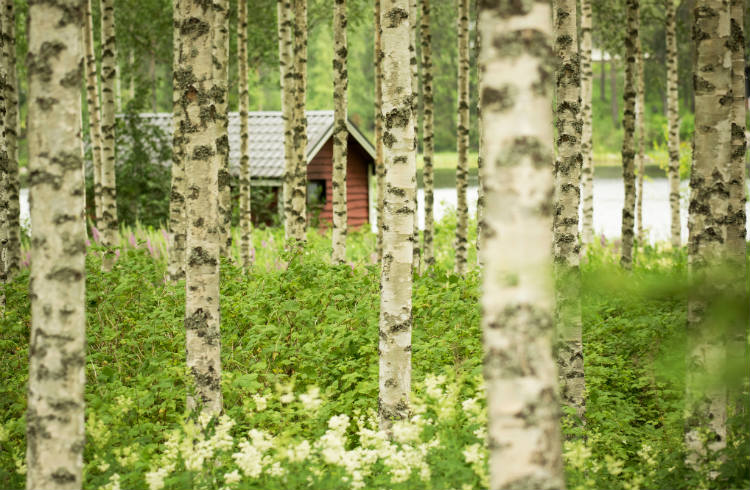
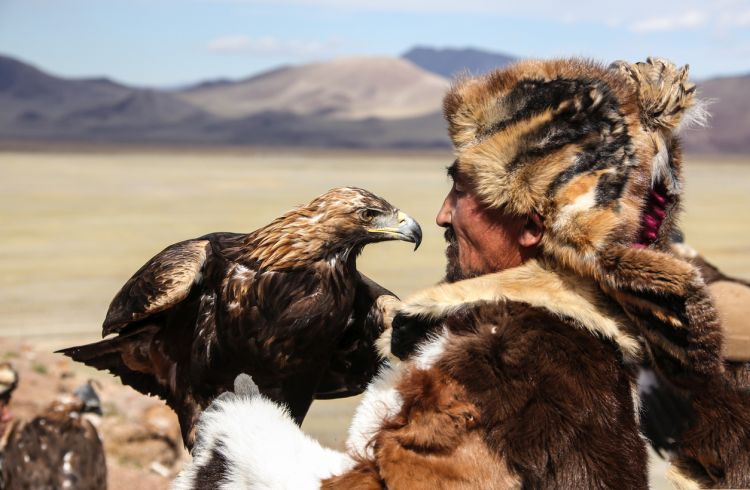
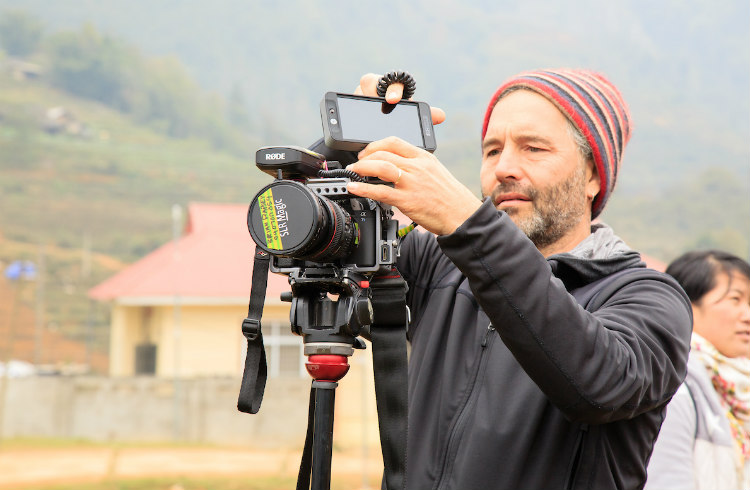
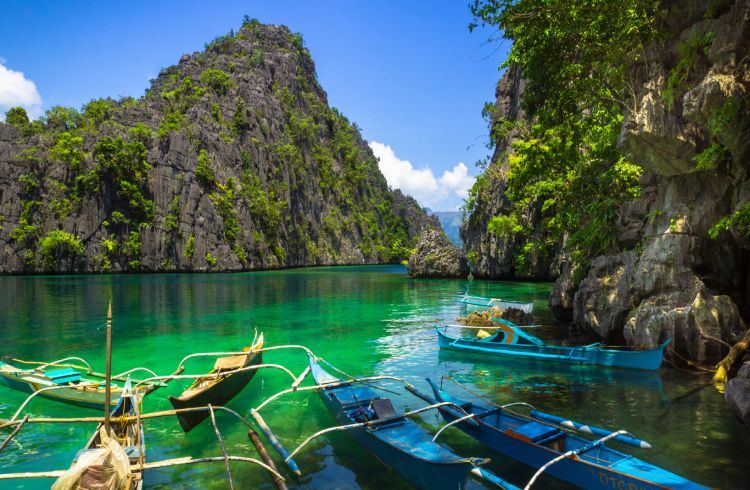
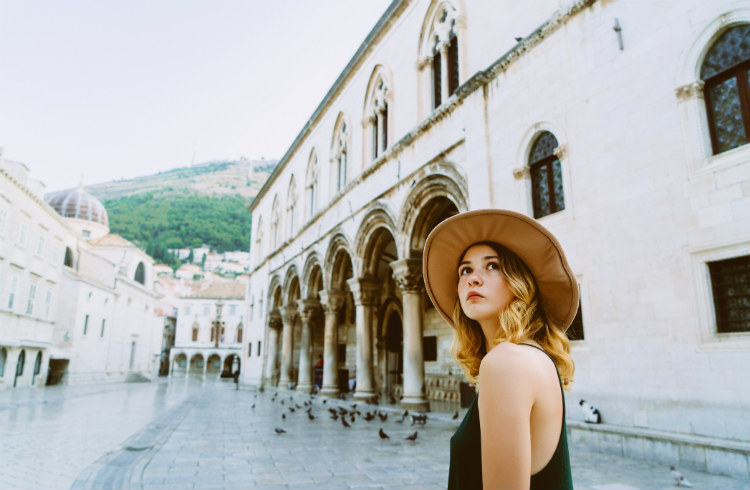
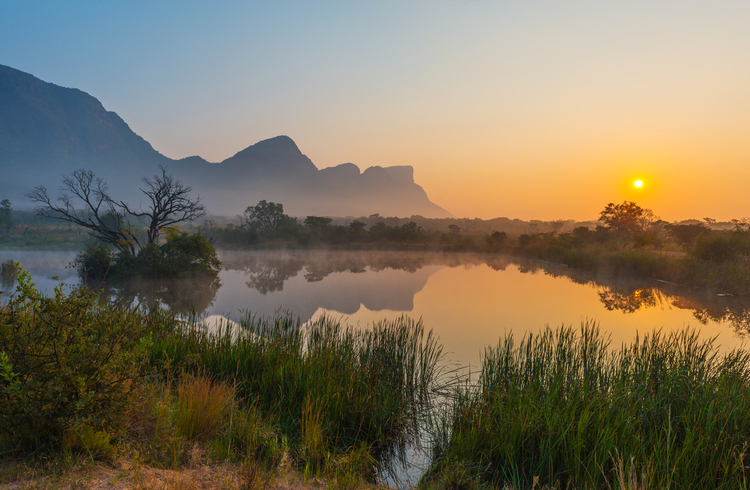
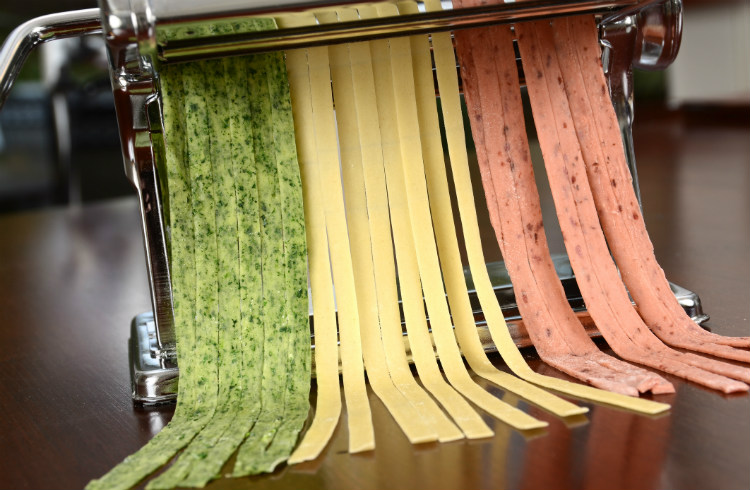
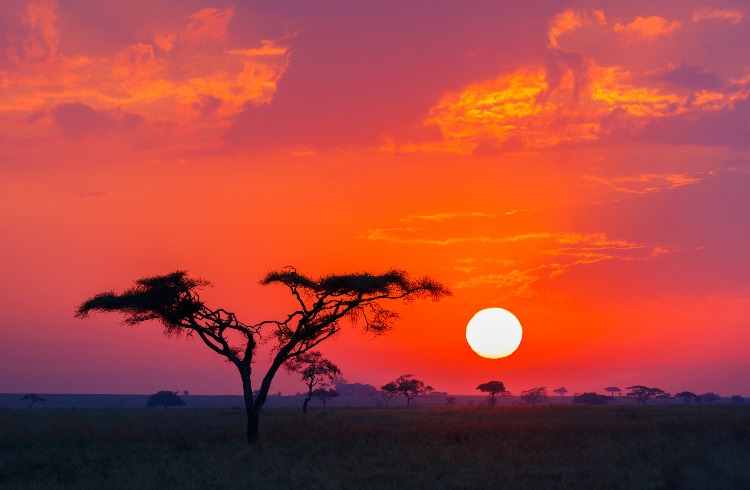
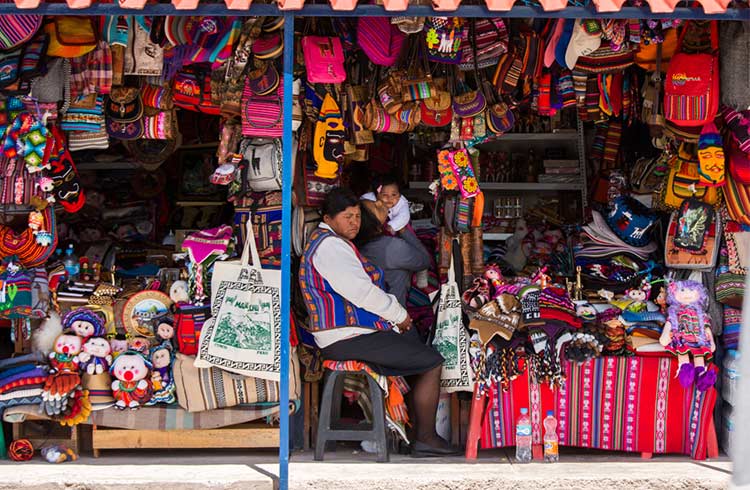
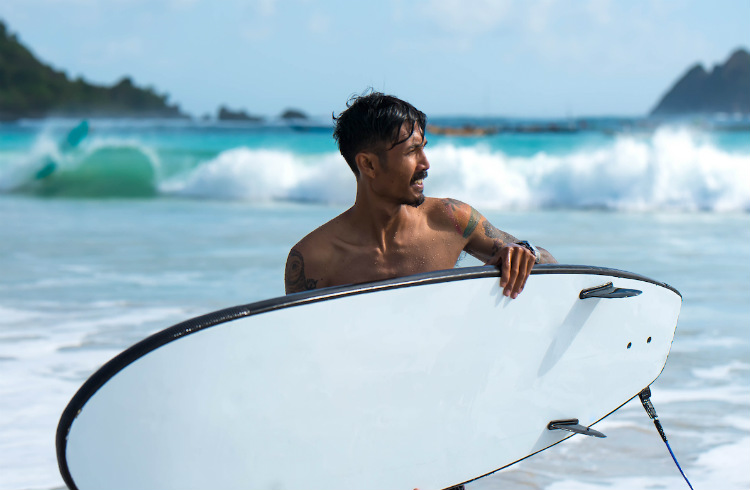
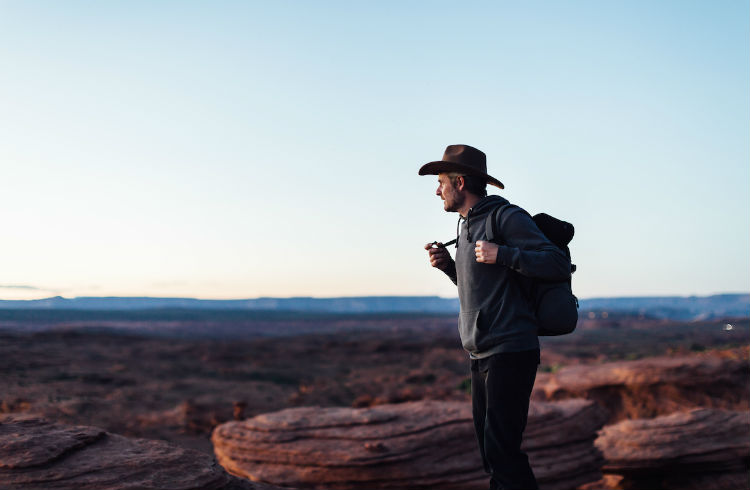
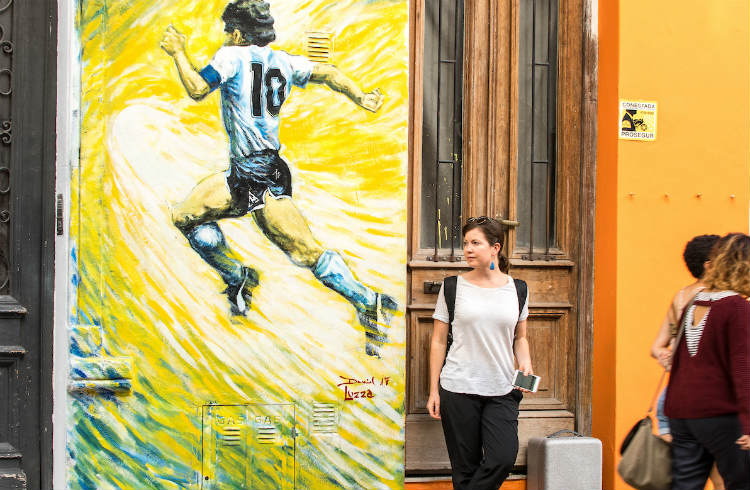
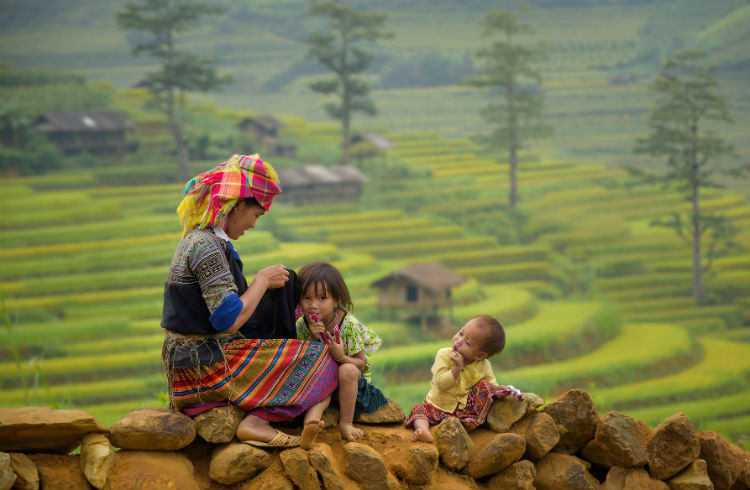

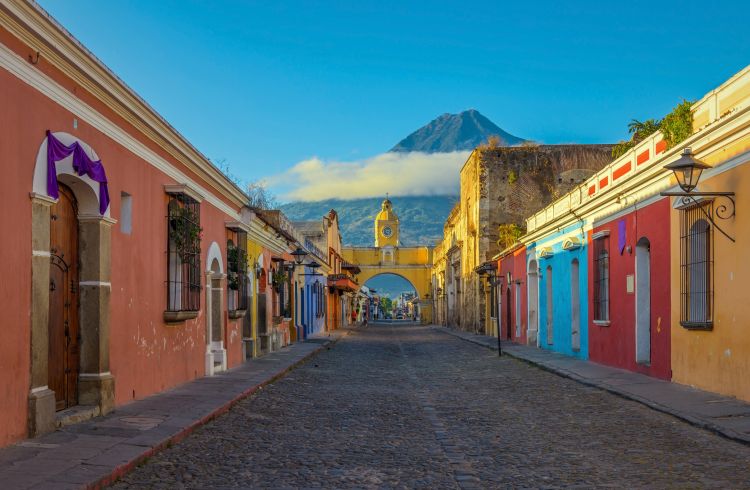
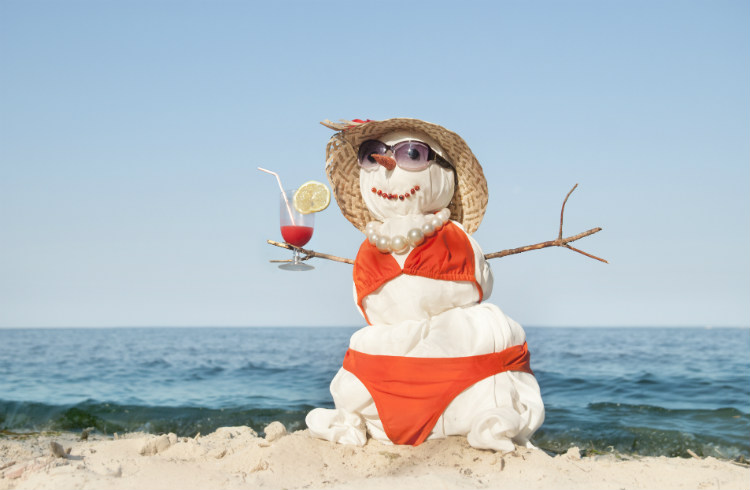
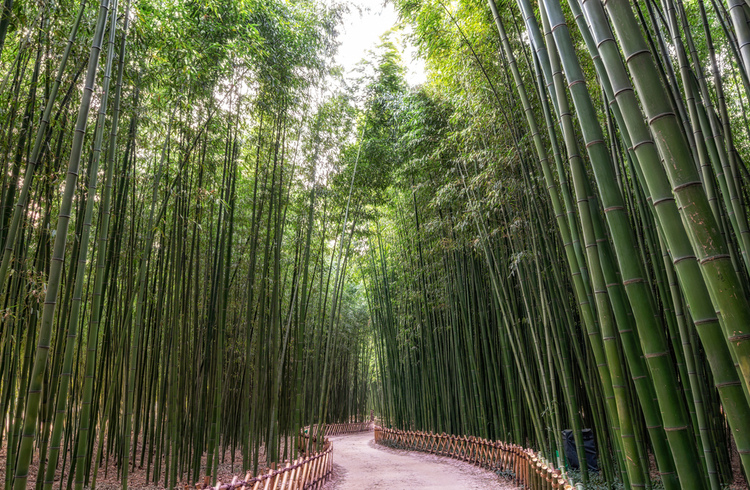
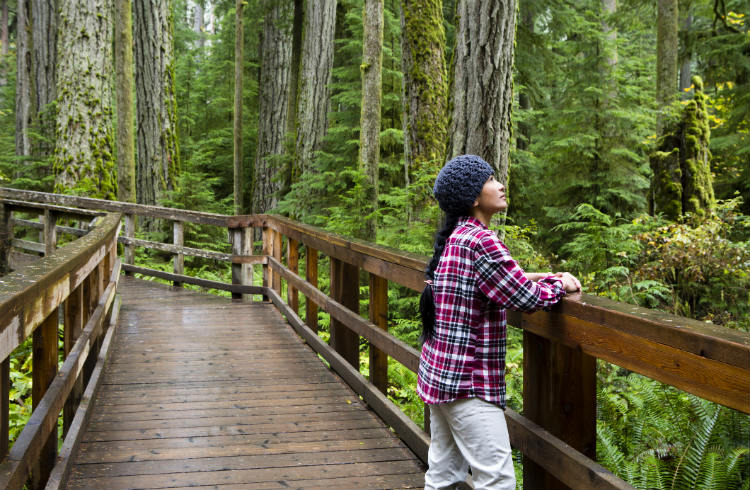
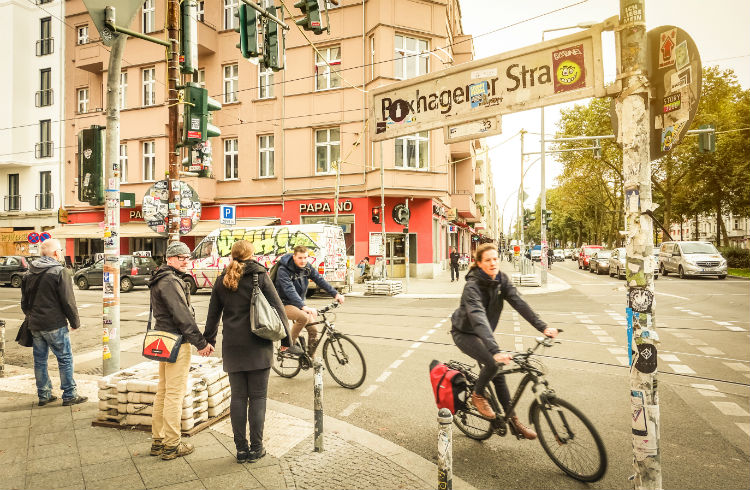
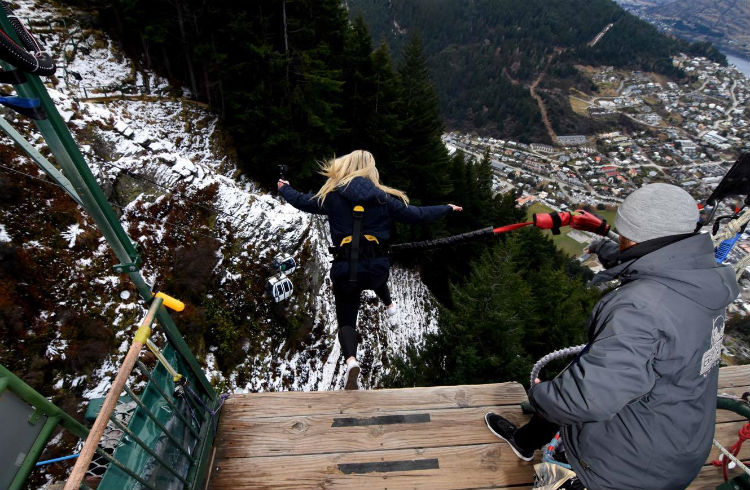
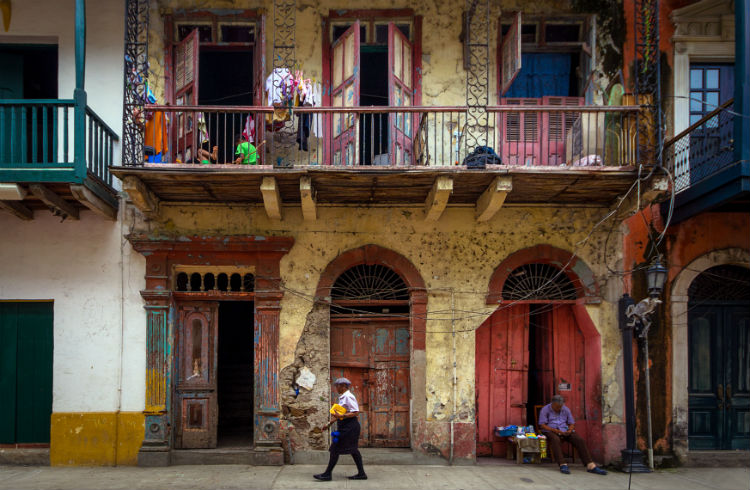
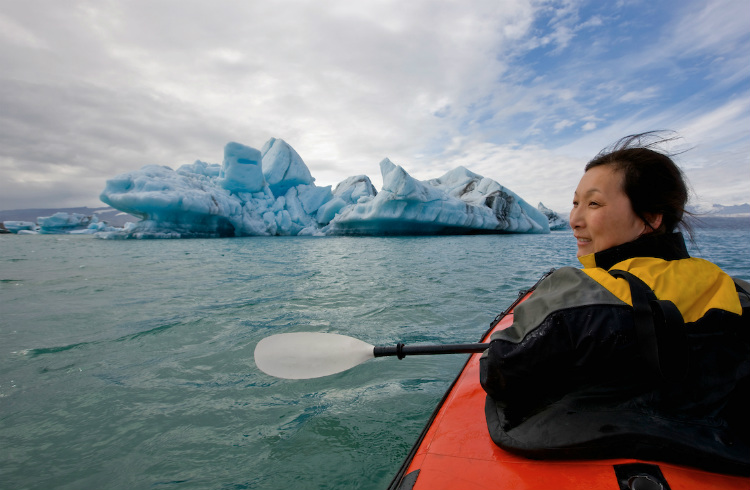
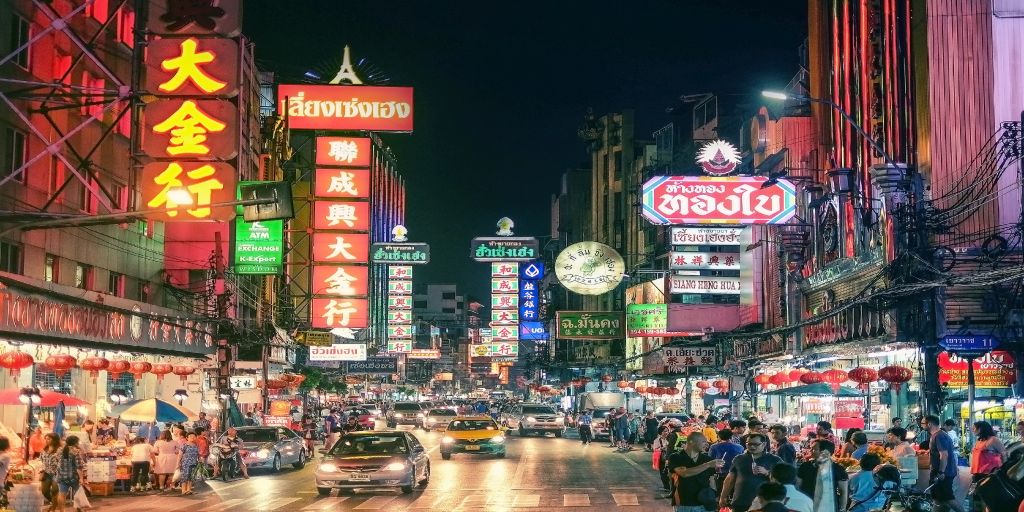
No Comments